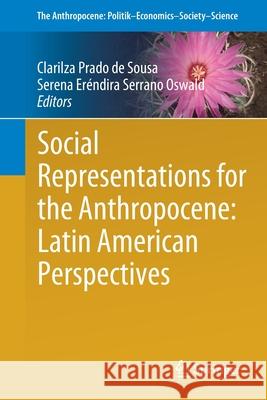Social Representations for the Anthropocene: Latin American Perspectives » książka
topmenu
Social Representations for the Anthropocene: Latin American Perspectives
ISBN-13: 9783030677770 / Angielski / Miękka / 2021 / 418 str.
Kategorie BISAC:
Wydawca:
Springer
Seria wydawnicza:
Język:
Angielski
ISBN-13:
9783030677770
Rok wydania:
2021
Wydanie:
2021
Numer serii:
000810817
Ilość stron:
418
Waga:
0.61 kg
Wymiary:
23.39 x 15.6 x 2.26
Oprawa:
Miękka
Wolumenów:
01
Dodatkowe informacje:
Wydanie ilustrowane











